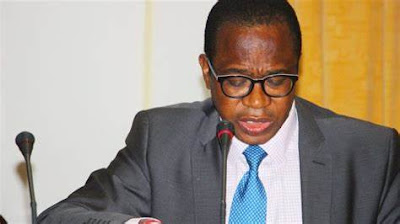FINANCE minister Mthuli Ncube has ruled out dollarisation even as the situation on the ground shows that the economy is self-dollarising as the local currency slides and prices of basic goods and services skyrocket.
Instead, Ncube said government would recruit more staff in
the Financial Intelligence Unit (FIU) to bolster its capacity to nab businesses
that have been pricing goods using black market rates and triggering hardships
for consumers.
This follows a public outcry that companies accessing cheap
foreign currency from the Reserve Bank of Zimbabwe (RBZ)’s auction system were
pricing their goods using parallel market rates.
The local currency was trading at US$1:$124 on the auction
system yesterday, against $230 on the parallel market.
“Now, coming to those who are breaking laws and not pricing
their goods at the auction rate, we have a FIU. If they are stretched, we are
supporting them in hiring more personnel so that they can get to those rural
areas to enforce the law in terms of compliance,” Ncube told parliamentarians
during a question and answer session on Wednesday.
“You will see in the last few weeks, a few people and a few
companies being mentioned in the media that have been fined for using the black
market rate in the pricing of their goods.”
He then told Parliament that the country will not
dollarise.
“We will not dollarise. Dollarisation is a very bad idea.
The reason why our industry is performing well — the utilisation is up there —
is because we have a domestic currency. It has made our economy to be
competitive; we cannot use the US dollar as a sole currency.
“The gap between the official auction rate and the parallel
rate is very huge. We also realised it has widened. What is more important is
that it must stay stable. What we do not like is for it to bounce around, but
it narrows, it is even better, and if it remains stable that will enable us to
control inflation.”
Ncube said economic agents always want to take advantage of
arbitrage opportunities by getting cheap money from the auction, and selling it
to the parallel market.
“We are aware of these shenanigans and we have been
arresting people for that, but they come back and keep round tripping like
that, we are aware of this and we are dealing with it in terms of law
enforcement but the gap exists because of those arbitrage opportunities.”
The Finance minister claimed that the quantum of foreign
currency going through the parallel market is actually smaller than that dealt
with at the auction system.
“In fact, if you take the auction and interbank together,
it is over $4 billion; the parallel market in terms of our calculations is
about $1 billion. So it is only a quarter of the formal market, yet it ends up
driving prices and that is the irony of it.”
“It takes time and citizens are still feeling the pain from
the introduction of the US dollar. They lost quite a bit of money and it just
takes time for them to transition into realising that the Zimbabwe dollar is
here and it is here to stay.” Newsday









0 comments:
Post a Comment